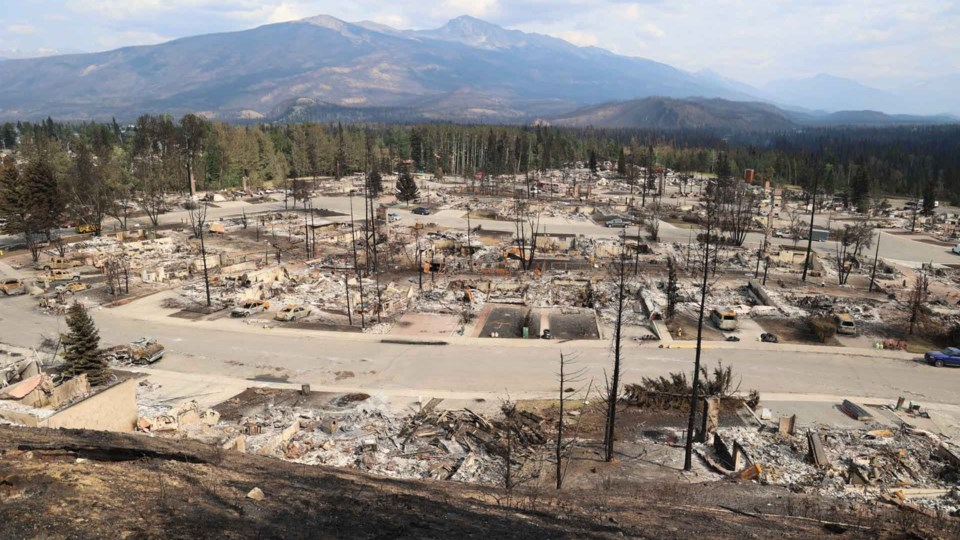Home buyers now have a host of tools at their fingertips to help evaluate a property.
Real estate listings are increasingly accompanied by scores for walkability, transit access, school zones, and even noise levels. But although data exists to forecast future risk to a home from wildfire, flood, and other increasingly common extreme weather, that information is not readily available in Canadian real estate.
“The unfortunate reality today is, when you go to buy a home, you often don't have a lot of information about the risk it faces. And I think absolutely we need to be working together to ensure people have access to that when they're making some of these decisions,” said Aaron Sutherland, the Insurance Bureau of Canada’s vice-president of Pacific and Western regions.
In 2024, Zillow began adding climate risk scores to its U.S. real estate listings. While Canada is a step behind in developing a similar rating system, it is in the works, Sutherland said.
IBC has been advocating for a climate risk system for years. And while the Government of Canada is working to develop a centralized portal or access point that would make the information on real estate markets available nationwide, “it's not quite there yet,” he said.
“They've expressed support. They've announced that they're going to do it. They began working on it. It's just ... taking longer than we would have expected for them to complete that work.”
Surveys have shown 35 per cent of Canadians consider weather-related climate risks when buying a home, and those who purchased a home recently are far more likely to be wary of the threat climate change creates for their investment.
And for good reason. Average annual insurable losses in Canada have increased 379 per cent in the last decade, according to research from insurance tech company MyChoice. Aside from catastrophic losses from wildfire and flood, potential buyers may want to think about whether increased wind and rain will add to repair costs over the life of the home, or how drought will change the cost of landscaping upkeep.
Along with home buyers, developers and municipalities are also increasingly looking to climate risk assessments to judge the long-term security of a new subdivision or major renovation project.
Environmental Risk Information Services (ERIS) is one of a few companies that offers climate risk assessments in Canada, but so far its customers tend to be environmental or engineering consulting companies calculating risks for new developments rather than from real estate, said Mike Seifert, ERIS’ regional account manager for the Prairies.
The company uses forecasting models and algorithms developed by U.S. company ClimateCheck and historical Canadian weather data to estimate major hazards to a property over the next 30 years.
One factor ERIS looks at are trends in heat days (when maximum temperatures are above a certain threshold), which can help developers anticipate costly renovations in the decades ahead, and reveal seasonal discomforts that don’t appear on a regular inspection report.
Seifert gave the example of someone who was looking at acquiring a seniors home and wanted to determine if the air conditioning system was adequate for the current number of heat days, and whether it would hold up against future projections.
The same questions apply if you’re buying a unit in a condo complex that was built 20 years ago, he said.
“Does the AC system need to be changed? Is it adequate? Or are you going to be having to pony up extra money out of the reserve fund? Or is there going to be a cash call to upgrade the air conditioning so you can live comfortably?”



